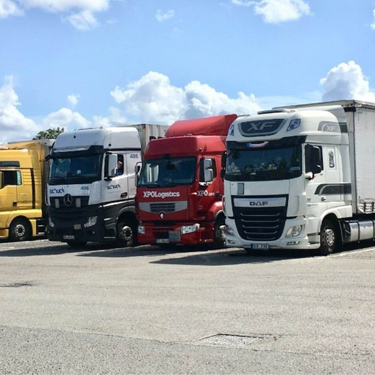Navigating the Roads: Essential Insights on Truck and HGV Insurance

When it comes to operating heavy goods vehicles or trucks, understanding the intricacies of insurance is vital. For businesses that rely on trucks for transportation and delivery, having the right insurance can mean the difference between smooth sailing and significant financial headaches. With so many options and considerations available, navigating the world of truck and HGV insurance can be daunting, especially for those new to the industry.
Truck insurance not only protects your valuable vehicles but also safeguards your business against the unexpected. It covers an array of potential risks, including accidents, damage, and liabilities. By choosing the right policy, you can ensure that you are adequately protected while complying with legal requirements. This article aims to shed light on the essential elements of truck insurance, helping you make informed decisions to keep your operations running smoothly.
Understanding Truck Insurance Basics
Truck insurance is a specialized form of vehicle insurance that provides coverage for commercial trucks and their operators. Unlike standard car insurance, truck insurance is designed to protect the unique risks associated with larger vehicles that often carry goods for business purposes. This coverage is essential for truck owners and operators, ensuring they are financially protected against accidents, theft, and damage that may occur during transportation.
When choosing truck insurance, it is crucial to understand the different types of coverage available. Liability insurance is typically mandatory and protects against claims made by other parties for bodily injury or property damage resulting from an accident. Additionally, cargo insurance covers the goods being transported, while physical damage coverage protects the truck itself against damage from collisions, theft, or natural disasters. Evaluating your specific needs will help you select the right combination of coverage.
Moreover, premium costs can vary significantly based on several factors, including the type of truck, its age, how it is used, and the driver's experience. Operators can often save on premiums by implementing safety measures or maintaining a good driving record. By taking the time to understand these basics of truck insurance, owners can make informed decisions that will safeguard their investments and business operations.
Types of Truck Insurance Coverage

When considering truck insurance, it's essential to understand the various types of coverage available to ensure your fleet is adequately protected. One of the most common types is liability insurance, which is mandatory in many regions. This coverage protects you against claims resulting from injuries or damage to others caused by your truck. How do I transfer my trucks with individual HGV bonus to an any driver fleet insurance policy covers legal fees and medical expenses, providing vital financial support in the event of an accident.
Another important type of coverage is physical damage insurance. This protects your truck from damage due to collisions, theft, or vandalism. Physical damage coverage can be further divided into comprehensive and collision insurance. Comprehensive insurance covers non-collision incidents like natural disasters or theft, while collision insurance covers damages resulting from a traffic accident. Having this protection in place is crucial for maintaining the value of your vehicle and ensuring that you can continue your operations without significant financial setbacks.
Cargo insurance is also a critical aspect of truck insurance coverage. This insurance protects the goods being transported in case of loss or damage while on the road. If your cargo is damaged due to an accident or theft, cargo insurance can help mitigate the financial impact. Depending on the type of goods being transported, specialized cargo insurance may be necessary to address specific risks associated with those items, ensuring comprehensive protection for both your freight and your business.
Choosing the Right Insurance Provider
Selecting the right insurance provider is crucial when it comes to truck and HGV insurance. Start by researching providers that specialize in commercial vehicle insurance to ensure they have the necessary expertise. Look for companies with a solid reputation and positive customer reviews, as these indicators often reflect their reliability and quality of service. Reach out to industry contacts or fellow truck operators for recommendations, as personal experiences can guide you toward the right decision.
Once you have a shortlist, compare the coverage options and premium rates offered by each provider. Pay attention to the details of the policies, including what types of coverage are available, such as liability, collision, and cargo insurance. Also, consider any additional features or services provided, such as roadside assistance or claims support. A comprehensive understanding of what each policy includes will help you determine which provider meets your specific needs.
Finally, evaluate the customer service and claims processing reputation of each provider. It’s essential to choose a company that is responsive and supportive, especially when you need to file a claim after an incident. Ask about their claims process, average response times, and how they handle disputes. A provider that prioritizes customer satisfaction and demonstrates a willingness to assist you will make a significant difference in your overall experience with truck insurance.
